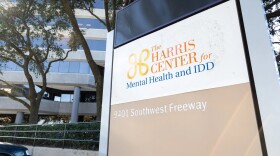From Texas Standard:
For some, how they feel about the science, treatment and prevention of COVID-19 is related to their political beliefs.
Back in April, Politico and the research company Morning Consult polled almost 2,000 registered voters and found that 71% of Republicans supported treating COVID-19 with hydroxychloroquine – a treatment President Donald Trump has touted, but that the U.S. Food and Drug Administration has warned is unsafe for the self-treatment of COVID-19. Meanwhile, only 29% of Democrats felt the same about that drug.
Susan Giaimo, a public health expert and political science professor at Marquette University in Wisconsin, told Texas Standard that she points to President Trump's rhetoric as a primary reason why the political divide over science and medicine is so strong right now.
"The president has pretty much continuously questioned the science and questioned his own task force on COVID-19," Giaimo said. "And so, I think he has, in large part, made it a partisan, political issue."
But she also said Trump is feeding into an existing political divide in America – one marked by mistrust of public institutions. For example, Trump has contradicted COVID-19 recommendations by one of his own agencies – the Centers for Disease Control and Prevention.
"There was already a wealth of suspicion toward government and institutions around things like vaccines," Giaimo said. "And think the administration's flip-flopping or undermining of some of these organizations like the CDC reduces and erodes public trust."
Giaimo said one major risk of politicizing the science and treatment of the coronavirus is hasty production of a vaccine. If a vaccine is produced too quickly without rigorous scientific standards and ends up hurting people, that could deter people from getting vaccinated in the future. Another risk is more COVID-19 cases and more deaths.
"The alternative to not believe the science is to allow the death toll to keep going up," she said. "I think, maybe, eventually, people will say, enough is enough."
Public trust can also waver when scientists and public health experts change their recommendations about how to prevent or treat COVID-19. But Giaimo said that's because that's the nature of science – it changes and evolves, and the public doesn't always understand that.
"Some of the recommendations from the CDC and WHO [World Health Organization] have changed as the science has changed," she said.
Copyright 2020 KUT 90.5







